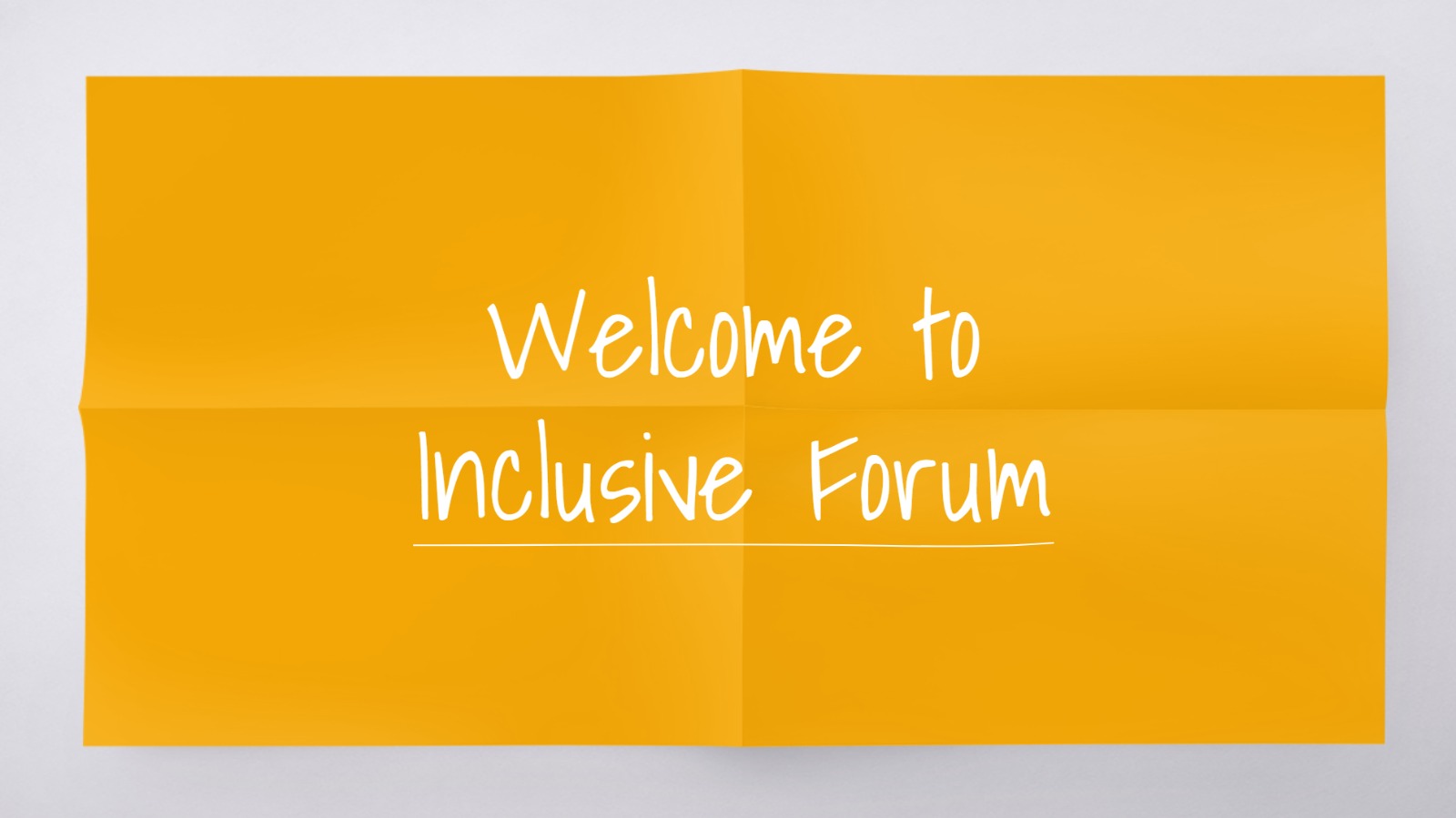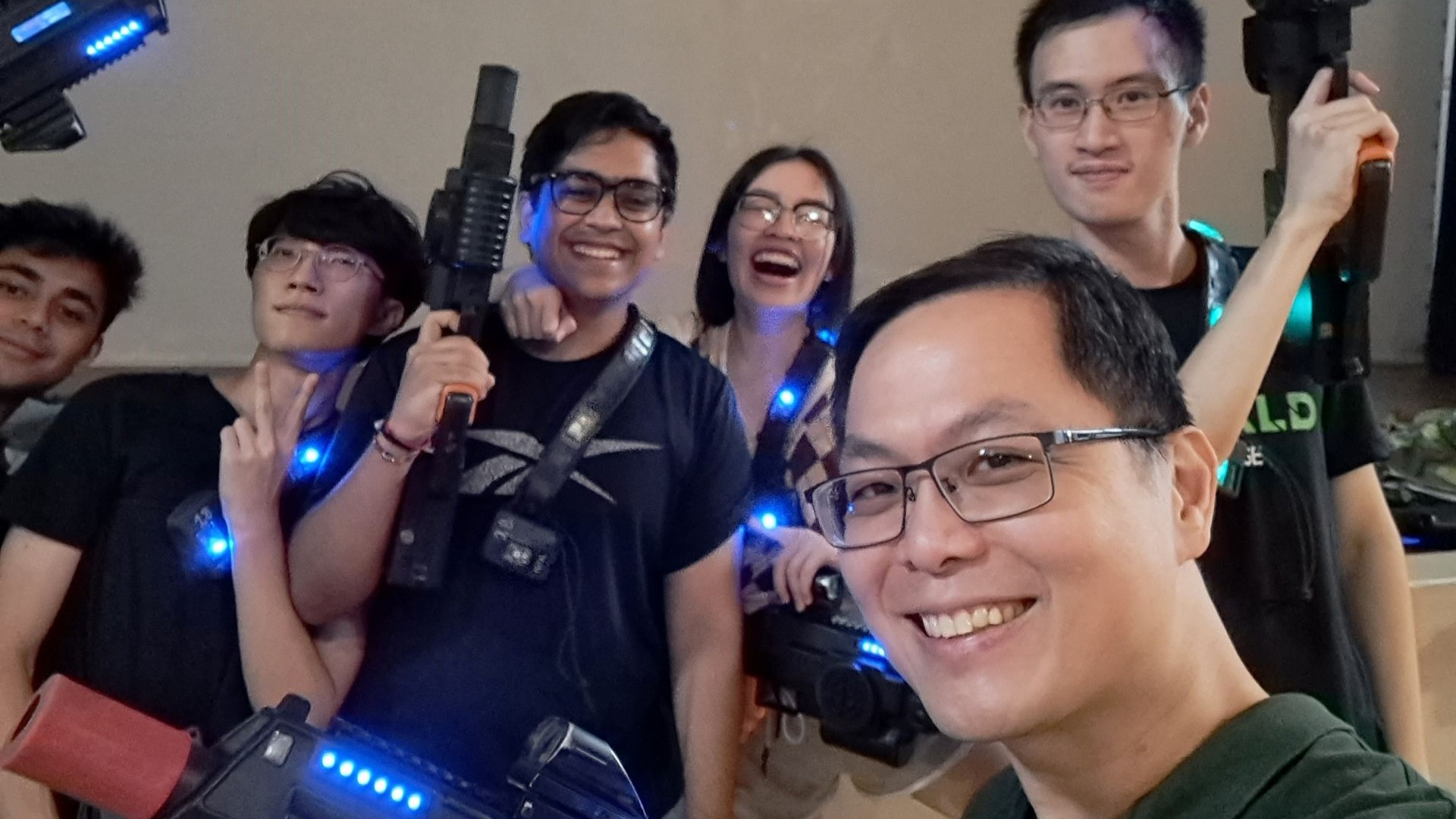On 20 March 2021, NUS Enablers held their annual flagship event, Inclusive Fest, to raise awareness and promote inclusivity among the general NUS population. The event comprises an "Inclusivity in Education'' Forum and an Inclusive e-Carnival.
Inclusivity in Education Forum
Students were provided the opportunity to gain different perspectives surrounding disabilities through "Inclusivity in Education'' Forum. The panel of speakers comprise Mr Jonathan Tiong, an NUS Alumnus with spinal muscular atrophy and Ms Lily Goh, a deaf entrepreneur and educator and the founder of ExtraOrdinary Horizons to Dr Kenneth Poon, the President of Rainbow Centre and an academic, educator, psychologist, and advocate who has spent the last 20 years working with persons with neurodevelopmental disabilities. Ms Valerie Lim, sign language interpreter for Ms Lily Goh, facilitated the communication through sign language interpretation during the session.
Mr Jonathan Tiong kickstarted the sharing with his fair share of ups and downs navigating two decades as a disabled student in the mainstream education system. He recounted how his parents faced multiple rejections finding a pre-school for him, before finally managing to get a spot in Bethesda Chapel Kindergarten. Along his whole educational journey to NUS, the inclusivity situation in Singapore improved. He benefited from schools purpose-built for accessibility and received support from dedicated personnel such as a full-time school counsellor and special needs officers whom he cited did a good job with what little resources they had.
Jonathan highlighted two noteworthy points for the audience, the first being “seeing disabled students as a "whole" person and not just their disability” as well as “recognising that they may need support in areas other than those specific to their disability, that may not be immediately obvious” under the psychological aspect for the 3Ps of inclusivity - physical, personal and psychological – an acronym which he had personally created.

Ms Lily Goh proceeded in covering a comprehensive piece on the Deaf community, reframing the mindset of hearing loss to deaf gain. A powerful snippet from a scene in Switched at Birth by ABC Family Channel was shared, which showcased how being deaf has given the Deaf community a language, community, perspective, identity and culture. Effectively, deafness is an asset.
Ms Goh also provided some top tips for communicating with the Deaf, such as “speaking clearly and steadily (and) at a normal tone of voice”, “taking turns to speak in a group conversation” and “resisting the urge to give up when misunderstandings happen.” She also gave a refreshing take on the history of sign language in Singapore and the role of language in society as a mode of communication.
Lastly, Dr Kenneth Poon gave an illuminating perspective on seeing disability through the eyes of a person with a myopic condition to illustrate how “a condition is a disability, only if the adaptive functioning of a person is affected.” “So otherwise, it's part of the broader variation of humanity, all of us are different. And that is something that can be celebrated,” he elaborated.
He elucidated how we as classmates, as colleagues, as neighbours of people with disabilities could do or not do differently to enrich the lives of people around us. “By moving things from doing for people to doing things with people” and where required asking a simple question: “Is there any way I can help you?”

Dr Poon also mentioned three key practical approaches in enabling students with disabilities, that which is addressing their functional limitations as well as changing the physical and social environment. “Disability” in his words, “is not only physical, but has a social component and it is whether we in society are making room for that person and the broad range of needs that persons with disabilities have.”

What is the goal of inclusivity in education? All three speakers encompassed the idea of levelling the playing field in their sharing.
Next, when asked if technology is more of a help or hindrance to people with disabilities, or whether it is better for deaf children to join mainstream schools (e.g. Mayflower) or specialised schools, the speakers also gave deep insights and salient points with their vast repository of knowledge and experience.
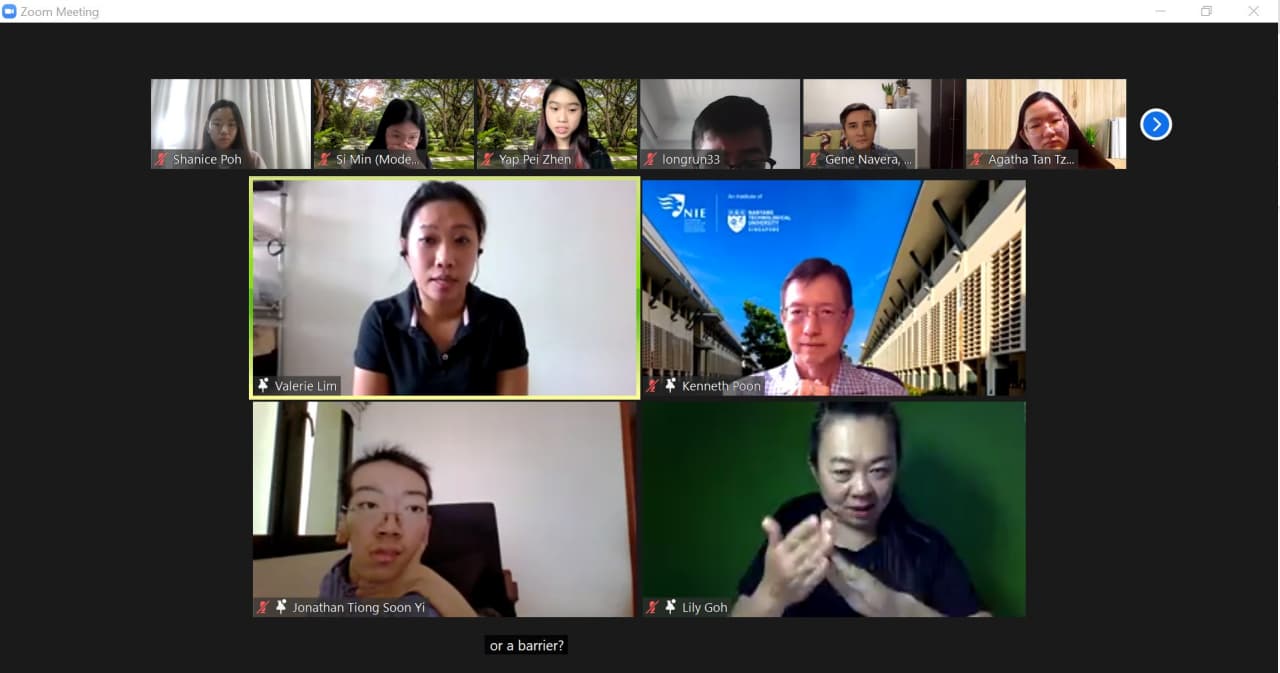
In all, Inclusive Fest: Inclusivity in Education Forum was eye-opening and informative for participants. Student attendees have responded favourably to the event, with some participants hoping to hear more from the panellists so as to gain more insights into inclusivity in education.
As for their takeaways, Zhu Ying Yeoh, a forum attendee reflects: “I was heartened to find out that a lot has been done to push for inclusivity in our education system through the forum. Admittedly, more needs to be done but I realise that we can all start by not being afraid to be a friend of PwDs!”
Ranjani D/O Anandan, Secretary of NUS Enablers added: “It is hard to completely understand what a person with special needs goes through. Through the sharing, I was able to understand the importance of actions such as installing fire alarms with strobe lights and giving priority to students with physical disabilities during the NUS module bidding exercise so that it is easier for them to navigate from one venue to another.”
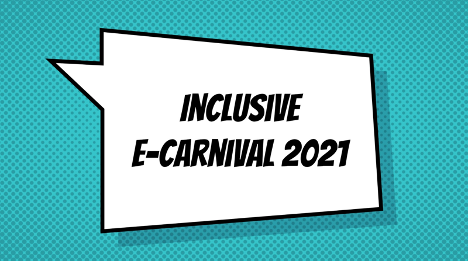
Inclusive e-Carnival
Inclusive e-Carnival, held later in the day, covered topics ranging from Dyslexia, to Sign Language and Developmental Disabilities. The topics were carried out in the form of fun and interactive simulation games, such as charades, Chicktionary and mixed letters which is a game simulating visual dyslexia. The games were followed by a mini quiz which help solidify participants’ understanding on developmental disabilities.
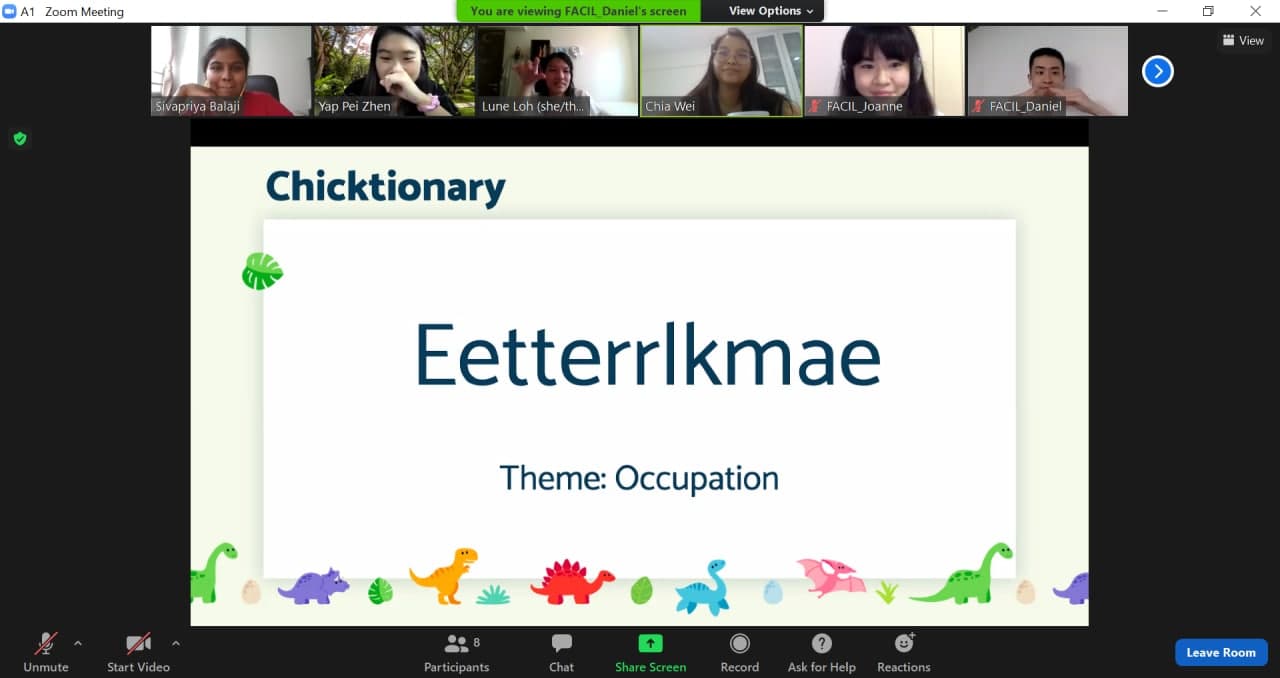
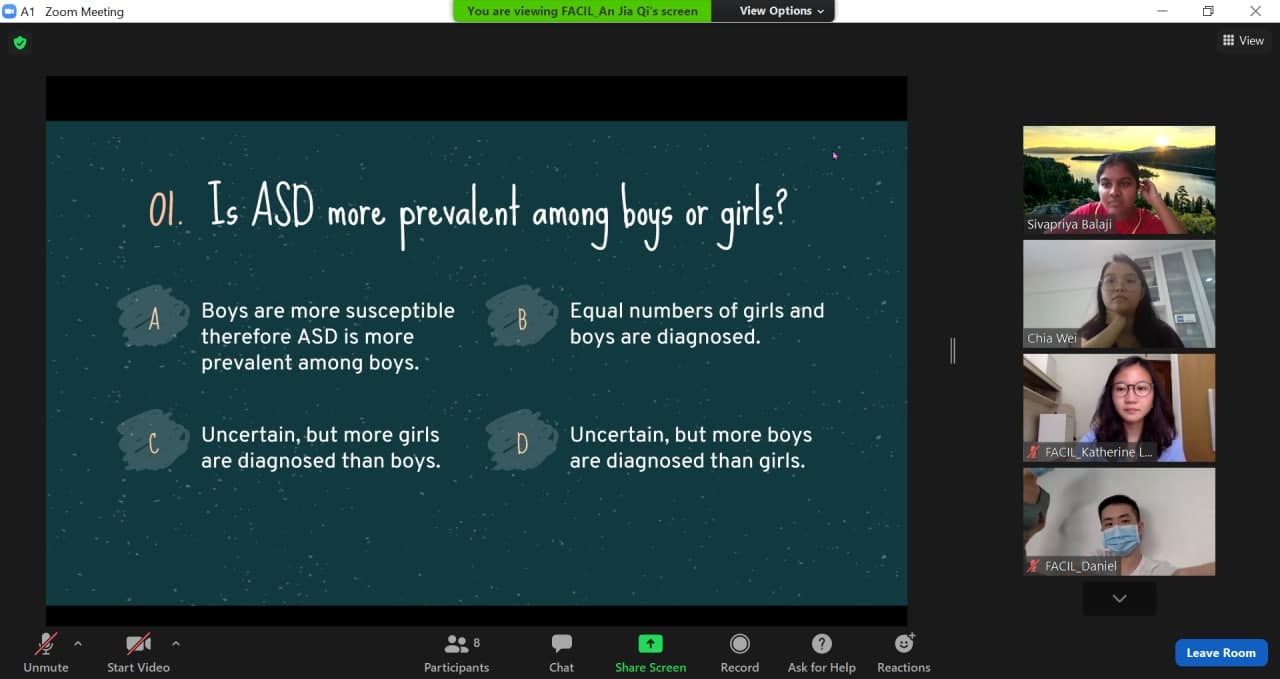
In various small breakout rooms, participants experimented using Singapore Sign Language (SgSL). They also watched insightful videos to learn about different disabilities and engaged in meaningful discussions to understand more deeply about how to support individuals with special needs.
NUS Students, facilitators and participants alike have gained much from the e-Carnival.
As Thirandi Maheli De Silva, a facilitator for the e-Carnival puts it: “Creating our games and discussion segments involved research and teamwork and it was a great learning experience for us. Being a facilitator was also a lot of fun since our participants were very responsive and enthusiastic!”
When asked, Lee Ying Xuan Antonia, a forum attendee remarked: “I have gained much knowledge on topics that were sufficiently broad and covered a range of disabilities. However, as we are not in the same situation, there's a limit to where head knowledge can bring us to understand them. I can empathise better after watching the video, Carly’s Cafe – experience autism through the eyes of Carly. It allowed me to see how overwhelming sounds and visuals can be to a person with autism spectrum disorder.”
Inclusive Fest has been a resounding success. As Hoh Zheng Feng Sean, Vice-President of NUS Enablers said: “It was heartening to see that so many of the participants were eager to learn more about the wide range of disabilities. This reveals a promising outlook: that many of our peers are interested in progressing towards a more inclusive community.”
Share:
Contributor
Shanice Poh, Year 1, NUS Business School


